Description
This striking and highly expressive mask from the Pende people of the Democratic Republic of Congo exemplifies a rare typology within their vast corpus of ritual masks: the so-called Mbuya ya Kipuka, often referred to as a “sickness” or “deformed” mask. Distinguished by its asymmetrical composition and symbolic distortion, this piece represents a sophisticated visual language used by the Pende to critique, educate, and engage their communities through masquerade.
The mask is sharply bifurcated along its vertical axis, one side rendered in a deep, burnished black, while the other remains ochre and raw, signifying imbalance or disruption. The structure is bold and commanding, with exaggerated facial features—an enlarged nasal bridge, sunken yet intense eyes, and an extended jaw pierced with ventilation holes. These visual cues convey physical affliction, both real and metaphorical, and are crucial to understanding its role within Pende society.
Above the brow rests a thick braided fiber crown, meticulously woven and bound in organic raffia. This headdress element would have once integrated with a full-body costume during performance, concealing the dancer entirely and enhancing the spirit embodiment.
Among the Pende, masquerade (*masquerade ya mbuya) is not mere spectacle but a cornerstone of social life—bridging the domains of the sacred, the political, and the theatrical. This particular mask, associated with the theme of illness or deformation, is part of a broader genre of “didactic” masks that address moral behavior, social disorder, physical anomalies, and ancestral justice.
Worn during public performances—often in the village square during initiation ceremonies, funerals of elders, or dry-season festivals—such masks serve as a living didactic theater. The dancer, fully clad and veiled, enacts exaggerated movements that evoke suffering or struggle, prompting laughter, contemplation, or sometimes unease among the audience. The message is clear: deviance, whether physical, spiritual, or moral, is to be recognized and addressed communally.
Despite its jarring aesthetic, the Mbuya ya Kipuka is not a symbol of mockery. Rather, it is a culturally sanctioned representation of vulnerability and imbalance—sometimes referencing individuals afflicted with disease, or at other times alluding to broader political or moral disruption within the community. By staging these figures in public, the Pende reaffirm their values, reinforce social cohesion, and maintain ancestral order.
This mask stands as a powerful testament to the Pende sculptor’s ability to fuse realism with abstraction and satire with reverence. Its asymmetrical beauty and psychological weight distinguish it from more commonly encountered African masks in the Western canon, making it a compelling acquisition for both private collectors and institutional collections.
Comparable examples can be found in the collections of the Royal Museum for Central Africa (Tervuren), the Musée du quai Branly (Paris), and The Metropolitan Museum of Art (New York), affirming its significance as both an ethnographic object and a sculptural masterpiece.








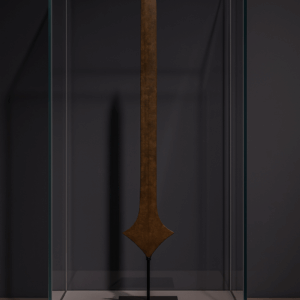
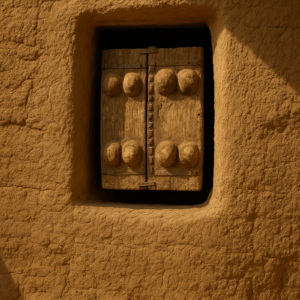
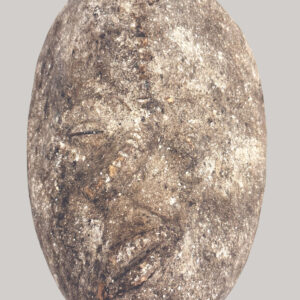
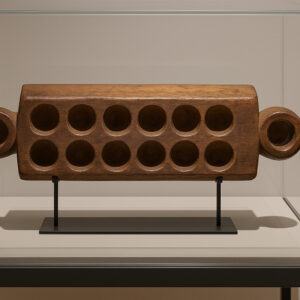

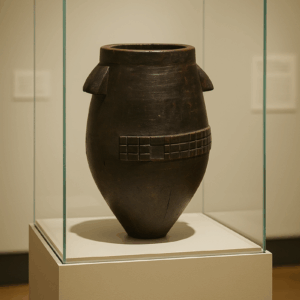

RECENT COMMENTS